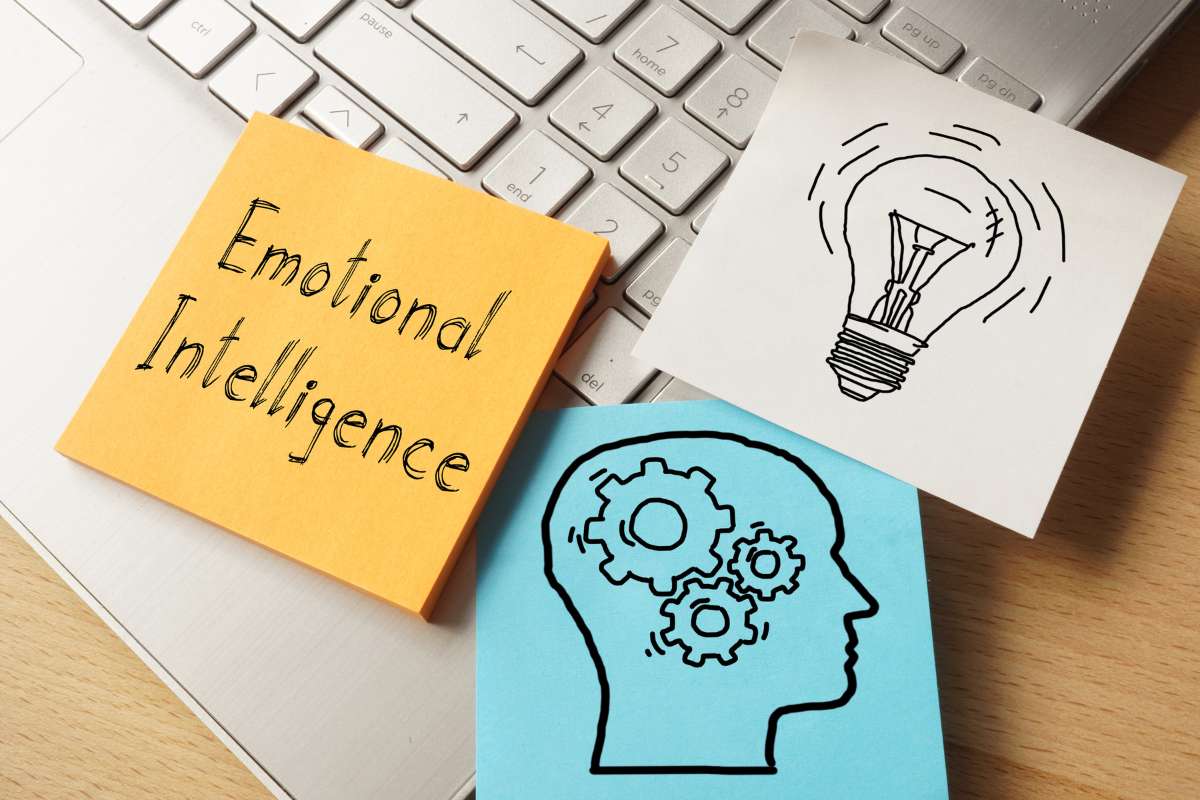Emotional Intelligence, also referred to as EQ or EI, is the ability to perceive, interpret, and manage your own emotions and those of others. It is about finding the right balance and how you express emotions in both, your personal and professional lives. We are bound to face obstacles at every phase in life. EI skills help us find the path through complexities, ensure better personal well-being, build relationships, and make wise decisions. Unlike intelligence quotient (IQ), which stresses cognitive abilities, EQ focuses on self-awareness, empathy, and interpersonal skills.
What does it take to be emotionally intelligent? To answer that you must understand the components of emotional intelligence. It helps resolve your underlying issues, improve communication skills, and create a positive mental headspace. This article will discuss the significance of these skills and ways to improve them.
Five Components of Emotional Intelligence
Psychologist Daniel Goleman was the one who popularized the subject of emotional intelligence. He talked about the five main components of emotional intelligence. These components will help you interpret and manage emotions
1. Self-Awareness
Self-awareness is the main aspect of EI. It involves understanding your emotions, recognizing their impact, and being aware of how your feelings influence your thoughts and actions. Individuals with high self-awareness can assess their strengths and weaknesses accurately, making them more confident and receptive to feedback. For example, a self-aware manager who recognizes their stress levels might take a pause, understand the situation, and avoid reacting impulsively during a meeting. This ability to pause and reflect prevents conflicts and instills a more positive work environment.
2. Self-Regulation
Self-regulation is the ability to control emotional reactions and impulses. It helps you to stay calm under pressure, adapt to changing circumstances, and manage frustration constructively. Those with strong self-regulation skills are less likely to make impulsive decisions or let emotions influence their actions. Consider a customer service representative handling an angry client. Instead of reacting defensively, a self-regulated professional remains calm listens attentively, and provides a solution-based response, ultimately pacifying the situation.
3. Motivation

Motivation is one of the key components of emotional intelligence. It refers to an inner drive that goes beyond external rewards such as money or status. Individuals with high motivation are goal-oriented, resilient, and passionate about personal and professional growth. They view challenges as opportunities to improve rather than obstacles. For instance, an entrepreneur facing multiple business setbacks continues striving for success, learning from failures, and staying dedicated to their vision. This intrinsic motivation sets them apart and increases their chances of achieving long-term success.
4. Empathy
Empathy is the ability to understand and share the feelings of others. It allows you to connect with people on a deeper level. This is one of the main components of emotional intelligence that builds trust and cooperation. Empathy is particularly essential for leaders, educators, and healthcare professionals who work closely with others. A teacher, for example, who notices a student struggling with coursework might offer additional support, recognizing that personal issues could be affecting their performance. This empathetic approach helps create a supportive learning environment.
5. Social Skills
Social skills help you to interact effectively with others, build relationships, and manage conflicts. Strong social skills include active listening, effective communication, teamwork, and leadership abilities. People with high emotional intelligence use their social skills to influence, inspire, and collaborate with others. A successful team leader, for instance, encourages open communication, resolves disputes fairly, and ensures that team members feel valued and heard. This approach creates a positive workplace culture and improves overall productivity.
The Importance of EI

Having strong emotional intelligence can make a big difference in your life. It helps you stay calm under pressure, handle awkward situations with ease, and make others feel comfortable in your presence. EI also helps you build deeper empathy, allowing you to connect with others on a meaningful level. Strong relationships create a solid support system, which is essential for both mental and physical well-being. The more you nurture your intelligence emotionally, the more fulfilling and balanced your life becomes.
Here are some key benefits of having good emotional intelligence:
- Better Leadership: When you understand the emotions of both yours and others, you become a more effective and compassionate leader.
- Stronger Communication: Knowing how people feel makes it easier to connect with them and express yourself clearly.
- Deeper Self-Understanding: Being aware of your emotions helps you understand yourself better and recognize what truly matters to you.
- Improved Self-Control: When you can recognize your emotions, you can manage them instead of letting them control you.
- Better Stress Management: Handling emotions well means you can stay in control even in stressful or challenging situations.
Examples of EI
Being Adaptable: When things change at work, being able to adjust without waiting for instructions shows emotional intelligence. Understanding why changes happen and considering how they affect others can help build trust. Supporting your teammates by sharing their workload when needed also encourages teamwork, making everyone’s job a little easier.
Building Connections: Spending time with colleagues outside of work helps strengthen relationships and improve communication. Workplace challenges can sometimes create tension, but getting to know people personally makes it easier to handle disagreements and work together better. A strong network of colleagues creates a more supportive and positive work environment.
Offering Emotional Support: Being kind and understanding when a colleague is struggling makes a big difference. When people feel comfortable sharing their concerns with you, it builds trust. Helping others find solutions to their challenges shows strong emotional intelligence and can even set you apart as a great leader who knows how to support and uplift a team.
How To Level Up Emotional Intelligence?
Being emotionally intelligent is important, but how can you actually get better at it? Here are some simple, practical steps you can take to strengthen your emotional and social skills.
Listen More, Talk Less

If you want to understand how someone feels, start by truly listening. Pay attention not just to their words but also to their body language, tone, and expressions. Sometimes, emotions are expressed more through actions than words. When you notice someone feeling a certain way, try to think about what might be causing it. A little observation goes a long way.
Put Yourself in Their Shoes
Recognizing emotions is one thing, but truly understanding them requires empathy. Try to imagine what it would feel like to be in their situation. How would you react? What challenges might they be facing? The more you practice stepping into someone else’s perspective, the better you’ll get at connecting with people on a deeper level.
Pause and Reflect
Emotions influence how we think, react, and make decisions. Take a moment to reflect on your own feelings. Understand how they influence your responses and interactions with others. When someone reacts strongly to a situation, ask yourself why they feel that way. Could something be going on that you don’t see? Comparing your emotions with theirs can help you understand different perspectives and build stronger relationships.
Takeaway
Understanding the components of emotional intelligence can significantly impact personal and professional growth and ensure overall well-being. By following the 5 main components, you can mold your ability to handle emotions effectively. Improving your EI can lead to better communication, stronger relationships, and more contentment in life and work.


















